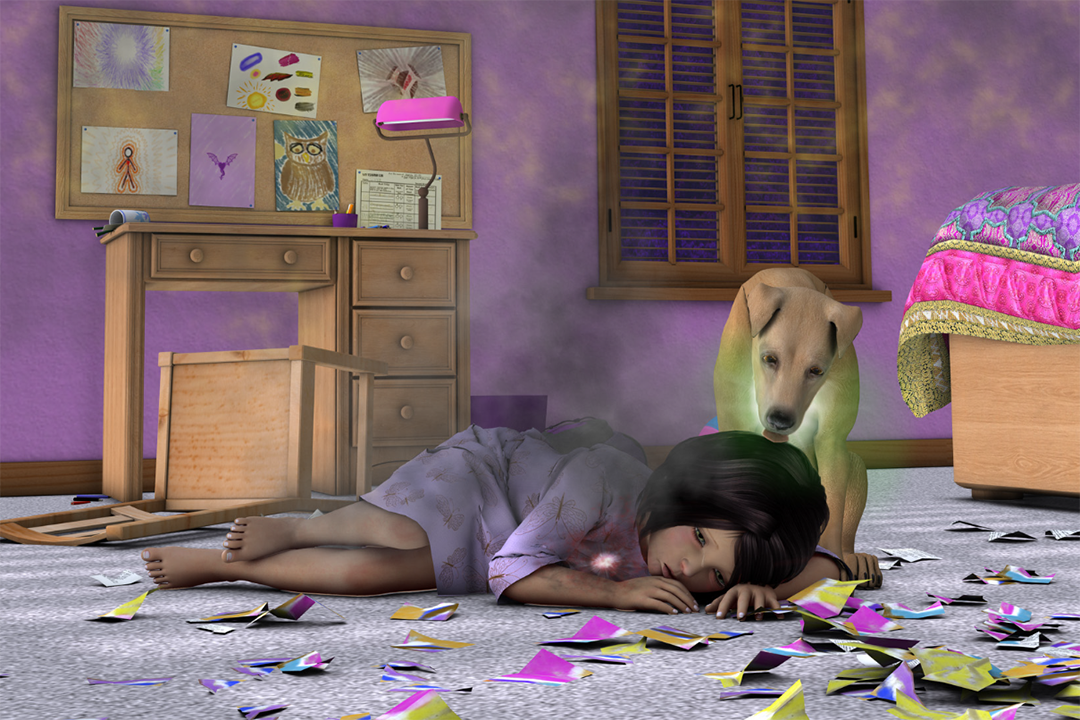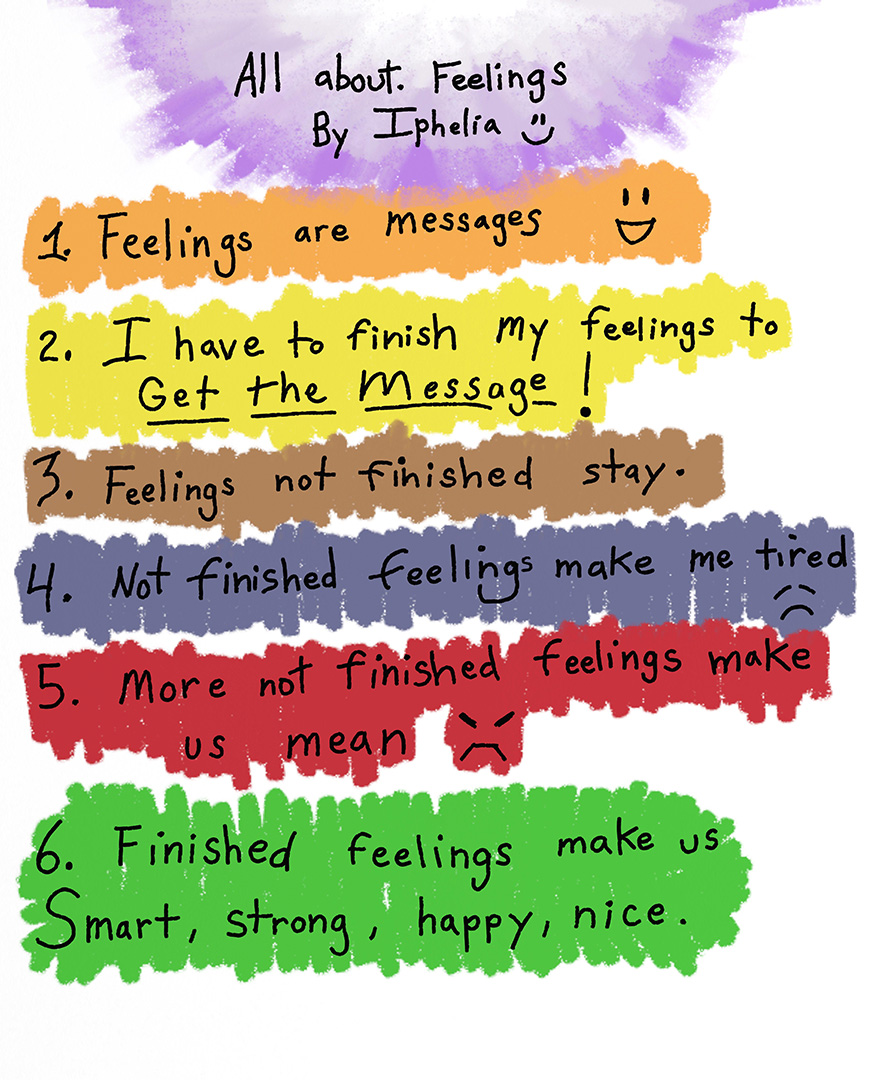
“Where lowland is, that’s where water goes. All medicine wants is pain to cure.”
—Rumi
I love the season of Fall. I think it is because wherever I look it speaks to my subconscious mind through the language of color and imagery. In a fittingly dramatic and beautiful way it says, “Everything changes, everything dies, and everything comes to an end.” This is an important universal truth that I believe has the power to teach us to live.
As the Summer gives way to Fall and I reflect on the last year—a time during which I continued to develop my practice, led Personal Transformation Intensives, and began the dedicated work of sharing Iphelia with the world—I introspect about what is motivating me to work so hard.
I feel the most challenging and most critical part of my job as a therapist is conveying to my clients the real value and importance of allowing themselves to really be with whatever struggles brought them to me—to feel their feelings of sadness, anxiety, fear, hurt, guilt, shame, anger and pain, et cetera. We live in the most emotionally suppressive, feeling-avoidant, chemically addicted and glamor-obsessed time in the history of human life on the earth. There are more ways than ever to avoid our feelings and avoid ourselves, and it is easier than ever to tell a delusional story to ourselves and our perceived audience.
Our uncomfortable feelings are messages and they are medicine. When we don’t take the time to feel them, we are forced to build stronger and stronger internal barriers of protection against them. Those barriers or defense mechanisms squash our capacity for real empathy and intimacy for all. As a result, our character gradually devolves into something more inconsiderate and narcissistic. We forget the relationship between our own heart and mind—between our conscience (or true self) and our actions—and become more and more focused on telling our story to the world around us. Ultimately the consequence of emotional suppression, despite the story we tell ourselves, is a life experience that is isolated, spiritless, numb, and desperate in its clumsy attempts to prove otherwise.
Conversely, when we do allow ourselves to really feel and express our feelings, we eventually arrive at feeling sadness of some kind. All roads lead to sadness. And when we allow ourselves to feel our sadness, the natural procession of life rallies to us mercy from all directions.
When we cry, oxytocin and other soothing endorphins are released into the bloodstream as stress hormones and toxins are released through tears. Our breathing pattern changes, often increasing air intake and oxygenation of the brain, which interrupts the nervous system’s stagnant homeostasis, improving our mood and helping us see from new perspectives.

When we sincerely express any of these feelings, we let others know we are in need of support and the genuinely caring people in our lives (if we have them) rush in to provide it (even our pets). Not to mention the spiritual forces that many of us may sense moving on our behalf during these times! We return to a state of emotional and psychological balance. That is to say we return to humility. We remember the truth that we are inherently vulnerable and interdependent beings. We need each other. There are those for us to serve and those we need the service of. This condition is not weakness. It is honest. It is knowing the self in a true and accurate context. And knowing the self-empowers us to excel in our chosen endeavors, whatever they may be, in the most direct and expeditious way—in a balanced way that is good for ourselves, our friends and family, and the rest of the world.
Heeding the Call
Today we are networked but we are disconnected. We are constantly interacting with each other via likes and follows and posts and snaps and tweets, but we are missing out on the healthy mind-opening challenges of diversity and the humbling yet meaningfully fulfilling intimacies of our hearts. This is because most of us are choosing to associate only with those we agree with and show those we are networked with only what we want them to see. The architecture of overwhelmingly rapid advances in technology and the fear-driven collective emotional suppression ruling our culture is perpetuating and intensifying this global crisis. It is time for an awakening.
As a therapist I feel called. I see myself as an educator campaigning for awakening and working with individuals somewhere along a continuum of awakening as I make my own way along that same road. It is sacred work powered by sincerity and presence that invites trust and vulnerability. As a result I have, for some time, maintained the practice of feeling my feelings and taking time to be still and observe my inner process in addition to observing the outside world. For me it has become apparent that every atrocity in the world can be traced back to some kind of emotional suppression. And as the drama intensifies in the notifications ticking across the screen of my smartphone, I feel a little sadness and some fear for my child and the future of his world.
So it is a calling with a sense of urgency. I let my clients know when we begin working together that I aim to teach them to live consciously. I let them know that feeling words will be important in our dialogue and that their willingness to feel their feelings is key to our progress. I ask them to commit to keeping longer periods of sobriety in their lifestyle. If they are taking psychotropic medications, I ask them to tell their psychiatrist they want to be prescribed just enough to function, titrating down to a “but life is still hard” dosage because I want them to feel their feelings. And in most cases, depending on the diagnosis and symptoms, I let them know that as soon as they start to feel better, I am going to encourage them to begin reducing their dosage further so they can someday return to their natural neurochemical baseline. I tell them the goal is not for them to want to always feel good but to become conscious enough that when they feel their pain, they can know for themselves its meaning.
I teach and campaign, one student at a time, one awakening at a time. Then there are ripples, inside myself and inside us all. And despite the reckless drama I see happening in the world, I feel hope.

“Your pain is the breaking of the shell that encloses your understanding. It is the bitter potion by which the physician within you heals your sick self.”
—Kahlil Gibran

